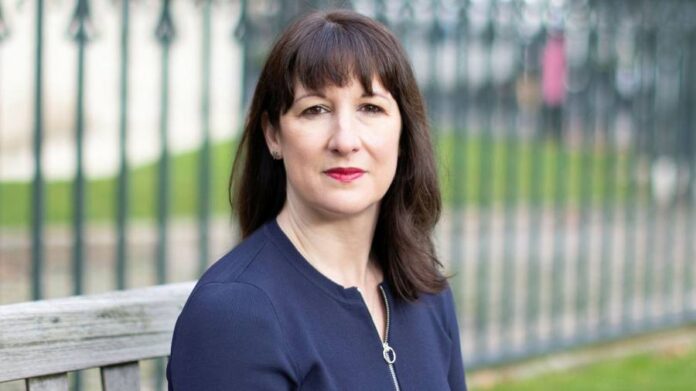Britain’s Labour party now has “a totally different mentality” towards business and running the economy than during the Jeremy Corbyn era, shadow chancellor Rachel Reeves has declared.
In an interview with the Financial Times, Reeves pledged that a government led by Sir Keir Starmer would be proudly “pro-business” and committed to fiscal discipline. “A precondition for doing anything is being trusted with public money,” she said.
Reeves, an economist handed the Treasury brief last May, acknowledges that Labour has a huge fight ahead to regain voters’ trust after the party suffered a historic loss in the 2019 election. But she believes that Boris Johnson’s political meltdown and the growing cost-of-living crisis meant that people were starting to ask what Labour would be like in office — and the party had to rise to the challenge
“It doesn’t sound totally preposterous that Labour could be in government some time quite soon,” she said. But she admitted the party needed to reassure people it had completely ditched its recent far left Corbynite past.
Central to Reeves’s pitch to voters, to be set out in a speech on Thursday, is that the Conservatives have become a “high tax, low growth” party and that she has a plan to fix that problem.
A former Bank of England economist who worked on the Japan desk, Reeves said Britain had suffered a Japanese-style “lost decade” of growth — and she claimed that a Labour government could reverse that.
She said her party would anchor its economic policies in fiscal rules that — like chancellor Rishi Sunak’s own framework — would eliminate borrowing for day-to-day spending and put debt on a downward path.
But Reeves’s plan would leave more scope for growth-promoting capital spending, particularly on a £28bn a year “climate investment pledge”. She said capital spending could exceed Sunak’s “arbitrary cap” of 3 per cent of GDP per year.
John McDonnell, shadow chancellor under Corbyn, had also pledged to borrow to invest and said that he could account for every penny the party planned to spend, but Reeves said: “Not many people compare me to John McDonnell.”
She laughed when talking about commitments made by the party under Corbyn, including spending £58bn on pensions for women approaching retirement and an offer of free broadband to everyone.
Reeves has charged shadow chief secretary Pat McFadden, a former business minister and veteran of the Blair era, with ensuring the party does not go into the election with unfunded spending commitments.
“Someone was telling me the other day how much they liked Pat,” she said. “I asked if they had ever tried to get money out of him.”
Reeves said Labour would form a partnership with business to increase growth, including developing infrastructure, more apprenticeships and increased research spending.
“Labour is a pro-worker party but we’re a pro-business party too, and very proudly so,” she said. But she made it clear that the wealthy would pay more tax if she became chancellor.
She has set out plans to close tax loopholes that help the private equity industry and independent schools. She has also argued that Sunak should tax income on dividends and property more heavily, rather than raising national insurance to fund the NHS and social care.
Reeves also made it clear that Labour would not reverse Brexit. Asked if she could see Britain rejoining the EU or single market in the next 50 years, she replied: “No, I can’t see those circumstances.”
She said she would “make Brexit work” by improving on the EU-UK trade deal signed by Johnson, and endorsed by Labour, by seeking to widen access to the single market for professionals, the cultural industry and the City.
But she does not want to see a return to free movement, arguing that voters in Leeds, where she is an MP, were “rightly angry” that new jobs in the city were being directly advertised in eastern Europe.
“I don’t want to go back to a system of free movement — it was the biggest reason people voted to leave and I don’t want to go back to that model,” she said.
Meanwhile Reeves said that a drop in Labour membership, which has reduced the party’s income, was a price worth paying for shedding unwelcome supporters and removing the “stain” of anti-Semitism from the party.
“Membership in my constituency is falling and that’s a good thing,” she said. People had left “who should never have joined the Labour party. They never shared our values,” she added.
About 80 party jobs have been cut and wages are being held down, but Reeves said Labour had to be fit to fight the next election. She said the party’s parlous finances were “another inheritance from the former leadership”.
“We were spending more on legal fees [including on anti-Semitism cases] than campaigning when Keir became leader.” Reeves said the party now had to focus on the electoral battle to come.
“When Keir appointed me to this role last May, he said people have to see me as prime minister and trust you with their money,” she said.
Credit: Source link











